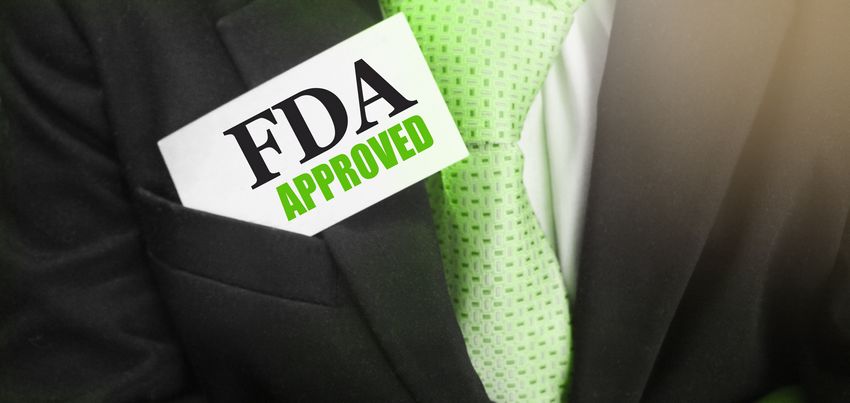The Food and Drug Administration (FDA) needs to reform its controversial tobacco regulatory program desperately.
In 2023, the Biden administration must now heed criticisms and recommendations related to the FDA Center for Tobacco Products (CTP) and its ongoing mission to protect public health and permit products to market in an equitable and enterprise-friendly way.
Reagan-Udall Foundation for the Food and Drug Administration, an independent nonprofit organization chartered by Congress to assist the FDA with regulatory scientific priorities, published a brand new report criticizing the overall tobacco regulatory regime established by the Tobacco Control Act of 2009, signed into law by former Pres. Barack Obama with notable bipartisan support.
“Applying new regulations to a large, existing industry is difficult, and CTP’s task has been made even more difficult because of the sheer volume of product applications, changes in [the FDA’s] leadership, and near constant litigation it has encountered,” notes the Reagan-Udall report that was published earlier in December.
However, the Reagan-Udall report clearly points out that the CTP has “struggled to function as a regulator in part due to some of its own policy choices.” The most prominent example that was used as an indication of the Center for Tobacco Product’s struggle to function as a regulator can be seen with the development and subsequent delivery of the deeming regulations and the scope of the product review mandates. Per the report, regulations “have been difficult for both stakeholders and CTP to apply in practice.”
 This is a very notable criticism because the Center for Tobacco Products, and the FDA as a whole, encountered a “near constant” state of litigation among public health and industry stakeholders.
This is a very notable criticism because the Center for Tobacco Products, and the FDA as a whole, encountered a “near constant” state of litigation among public health and industry stakeholders.
In my writing over the years on this topic, I’ve noted multiple cases of regulatory bloat and the lack of ability of the Food and Drug Administration to take on such a challenge of implementing sweeping tobacco and deemed product regulations that were imposed well over a decade ago. There’s very little in this world that is as complicated as implementing a new set of public health regulations to further prevent the leading cause of preventable death in the United States, and much of the globe. It is hard to say that there hasn’t been success with the Center of Tobacco Products, because there has been. But, given its policy design, the whole system adopted under the Tobacco Control Act is untenable. The Reagan-Udall report points to much of this.
One other area of interest is the mere level of “overwhelming workload” the CTP’s staff of over 1,100 civil servants must take up on a regular basis. Before the final deadline for the PMTA regulatory pathway would close, the Center for Tobacco Products only received about 432 premarket applications in accordance with the new regulations. In the fiscal year 2020, that number grew to well over 8 million. A minuscule amount of applications were granted, with many of the PMTA-approved products from large tobacco firms with vaping businesses (e.g., RJ Reynolds) and middle-market independent vaping manufacturers like NJOY.
“Stakeholders observed that the current application review process is extremely cumbersome and time-consuming, characterizing the submission requirements as vague and frequently changing,” Reagan-Udall interestingly points out.

“From the stakeholders’ perspective, policy shifts with broad impact on the industry occurred without notice,” via the report.
This environment contains its own difficulties, per CNN’s coverage of the Reagan-Udall report: some companies still market products without approval, even sending in applications that do not meet the legal criteria or appealing decisions to prolong enforcement. All the while, the enforcement process is long and complex, and the federal Justice Department is also inherently responsible for deciding whether punitive action should be taken against them.
Simply put, the current nature of the PMTA program places the current state of vaping in a grey market — one that isn’t illicit or necessarily illegal. This overwhelming amount of work the Center for Tobacco Products finds itself buried under presents the vaping industry with an opportunity to still operate, due to the lack of actions taken by the Food and Drug Administration. Thus, this grey market continues to allow independent manufacturers and vape shop owners to participate in business while a specter of regulatory bogeymen watches on helplessly until they are able to finally act. At least, that is one way to describe the mindset that grips thousands of small- and medium-sized business owners.
In fact, it is a safe bet to assume that the Reagan-Udall report is so sobering for stakeholders of all types that the final point of this column must be made. As I pointed out in the beginning, the FDA has a responsibility to reform the processes and programs under the Center for Tobacco Products and its various science offices.

Despite the fact that the center has been in existence for over a decade, the successes noted by advocates for its existence (of course, me being one of those more pragmatic advocates who sees the CTP as a potentially viable body to counter widespread smoking) are outmatched by those who continue to point out the ongoing shortcomings and failures tied to the efforts of the organization. A government agency is required by national law to run efficiently and in a manner that is equitable for all of the stakeholders impacted by the agency’s main regulatory purview.
“Overall, the Panel is confident that many of the concerns raised in this report can be addressed by CTP’s talented and dedicated staff, with the support of FDA leadership,” the letter notes. Panel members who reviewed the CTP’s programming were led by former FDA staffers, including former chief of staff Lauren Silvis.
“Today, the panel released its findings and recommendations to the agency,” notes a statement on the Reagan-Udall report by FDA commissioner Dr. Robert M. Califf, a noteworthy anti-vaping advocate who served in several public health roles. “I want to thank the panel and the Reagan-Udall Foundation for their work and for all those, including FDA staff and external stakeholders, who provided important feedback for the panel to consider.”








